Introduction
How can you effectively cover your deck from rain on a budget? Many homeowners face this challenge, particularly when trying to protect their outdoor space without incurring a significant expense.
The good news is that there are plenty of affordable solutions available, whether you’re considering tarps, canopies, or even DIY projects.
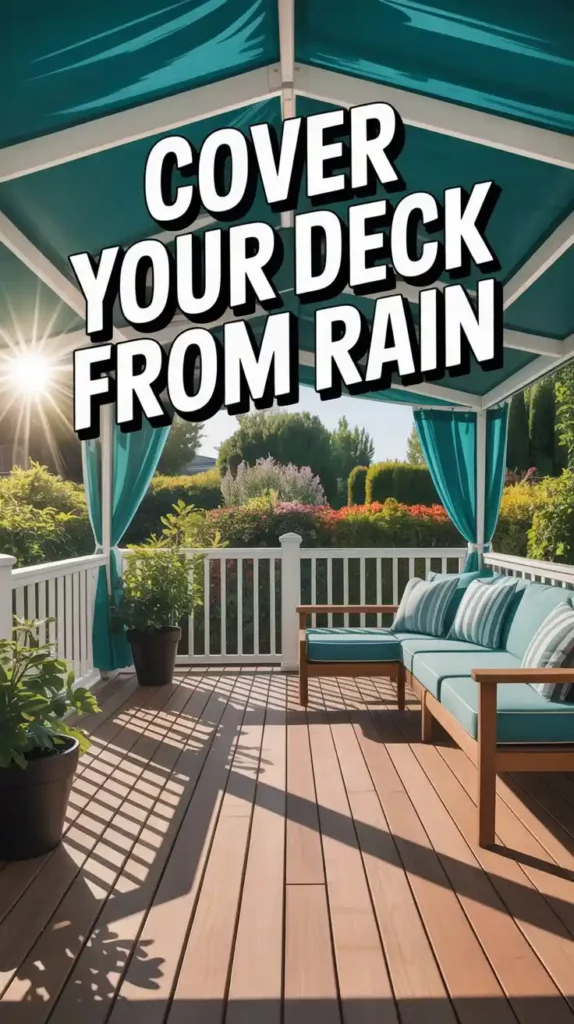
By exploring these budget-friendly options, you can safeguard your deck from water damage, mold growth, and slipping hazards while enjoying your outdoor area year-round.
In this article, we’ll delve into practical tips and creative ideas to help you cover your deck from rain without breaking the bank.
Table of Contents
Understanding Deck Protection
Why Cover Your Deck?
Covering your deck is essential for several reasons. First, it prevents water damage that can lead to costly repairs. A good cover also protects against mold growth and extends the life of your decking material. With the right solution, you can keep your outdoor space safe and usable, regardless of the weather.
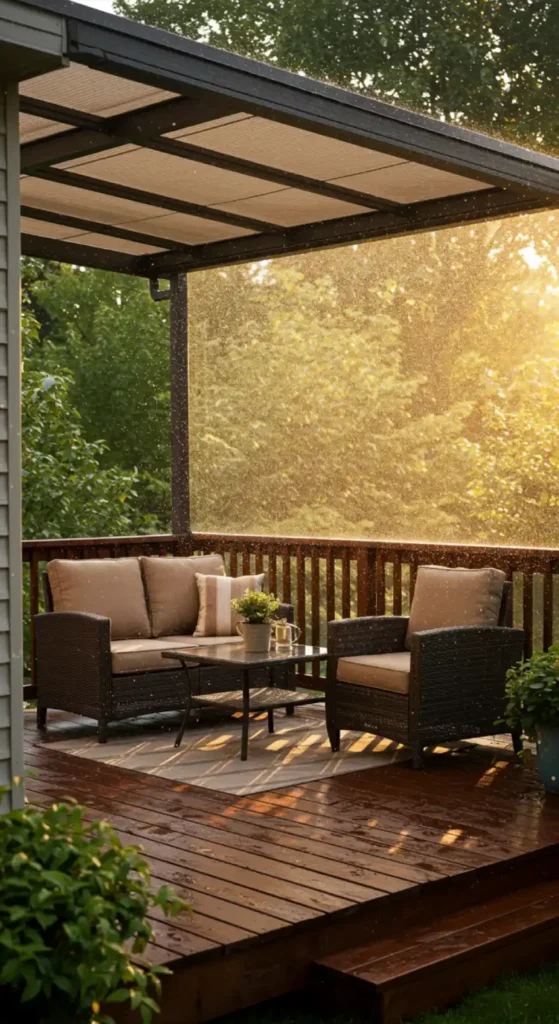
Common Issues from Rain Exposure
Rain can cause several problems for your deck:
- Rotting Wood: Prolonged exposure to moisture can cause wooden decks to decay.
- Slipping Hazards: Wet surfaces can become slippery, posing safety risks.
- Mold Growth: Moisture encourages mold growth, compromising your deck’s integrity and negatively affecting the air quality around your home.
Budget-Friendly Covering Options
Let’s explore some affordable options for covering your deck.
1. Tarps and Covers
Tarps are a versatile and inexpensive option. You can find them in various materials, like canvas or polyethylene.
Installation Tips:
- Secure the tarp with ropes or bungee cords to keep it in place.
- Ensure it’s taut to prevent pooling water, which can lead to sagging.
Cost Estimate: Expect to pay between $20 and $50 for a quality tarp.
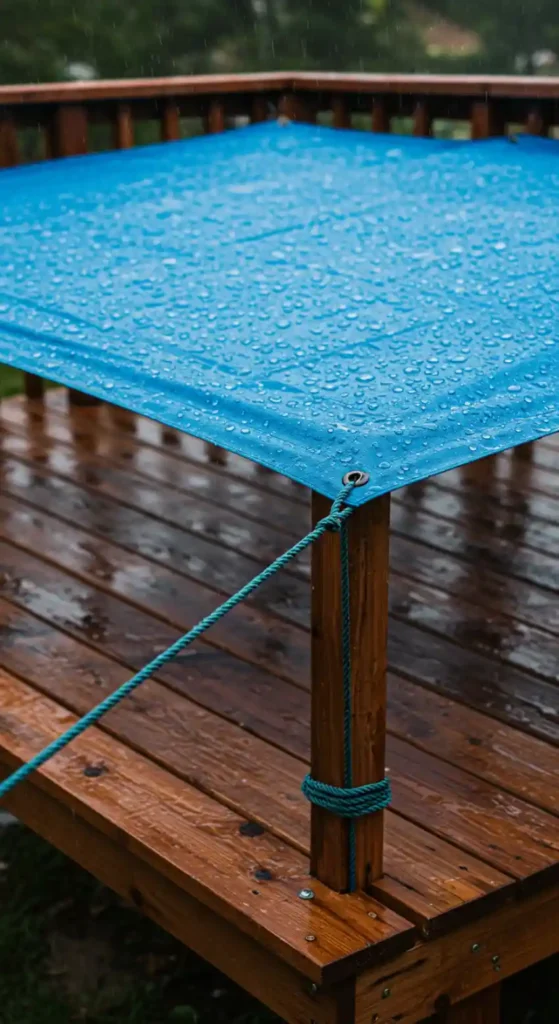
2. Canopies and Umbrellas
Canopies and patio umbrellas come in many styles and can provide shade and protection from light rain.
Installation Tips:
- Select a sturdy design that can withstand strong winds.
- Pop-up canopies are user-friendly and easy to set up and take down.
Cost Estimate: Prices range from $50 to $150, depending on size and quality.
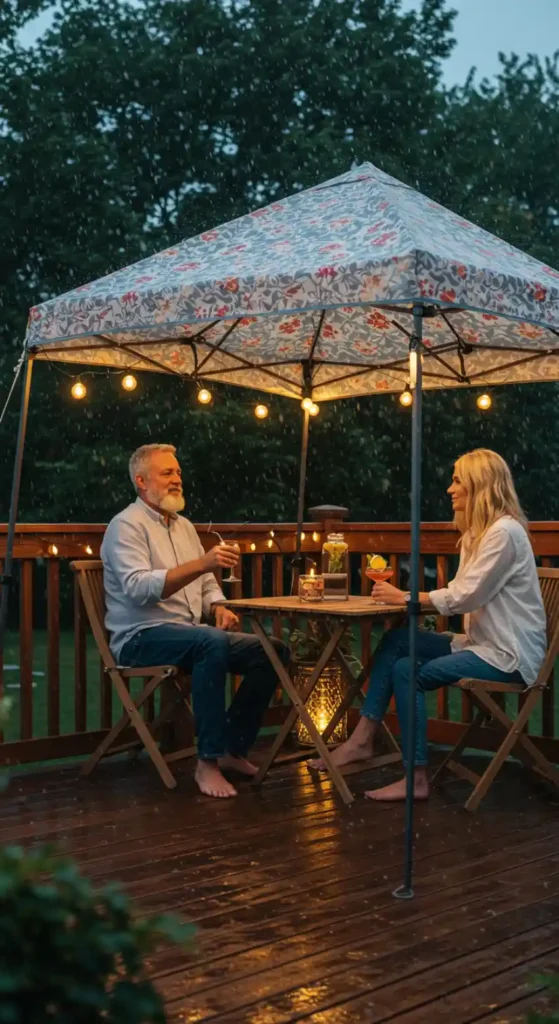
3. DIY Solutions
If you’re handy, consider these DIY options:
A. Building a Simple Pergola
Materials Needed:
- Wood (cedar or pressure-treated lumber)
- Screws
- Tools (saw, drill, level)
Step-by-Step Guide:
- Measure your deck area.
- Cut the wood to size.
- Assemble the frame and secure it to your deck.
- Add slats for partial coverage to block rain.
B. Creating a Retractable Awning
Materials Needed:
- Water-resistant fabric
- Metal or wooden frame
- Pulley system
Tips:
- Ensure the awning can be easily retracted when not in use for convenience.
C. Using Shade Cloth
Benefits: Shade cloth is lightweight and easy to install. It blocks UV rays while allowing airflow, making it an excellent option for rain coverage.
Installation Tips:
- Use clips or hooks to attach it securely to your deck railing.
Cost Estimate: DIY options can range from $100 to $300, depending on the materials chosen.
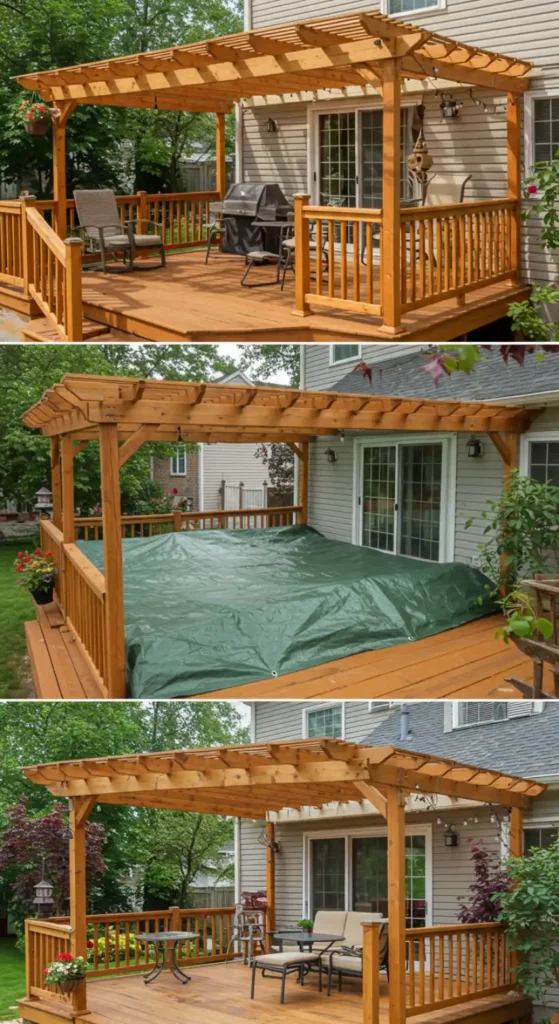
Maintenance Tips for Longevity
Once you have your deck covered, regular maintenance is key to ensuring its longevity.
Care Tips
- Cleaning: Remove debris and dirt regularly to prevent the growth of mold and mildew.
- Storing: In the off-season, store your covers in a dry place to prolong their life.
Inspecting for Damage
Check your coverings periodically for wear and tear. Look for:
- Rips or tears in tarps and fabrics.
- Loose fittings or damaged hardware that may need repairs.
Addressing these issues early can save you money in the long run!
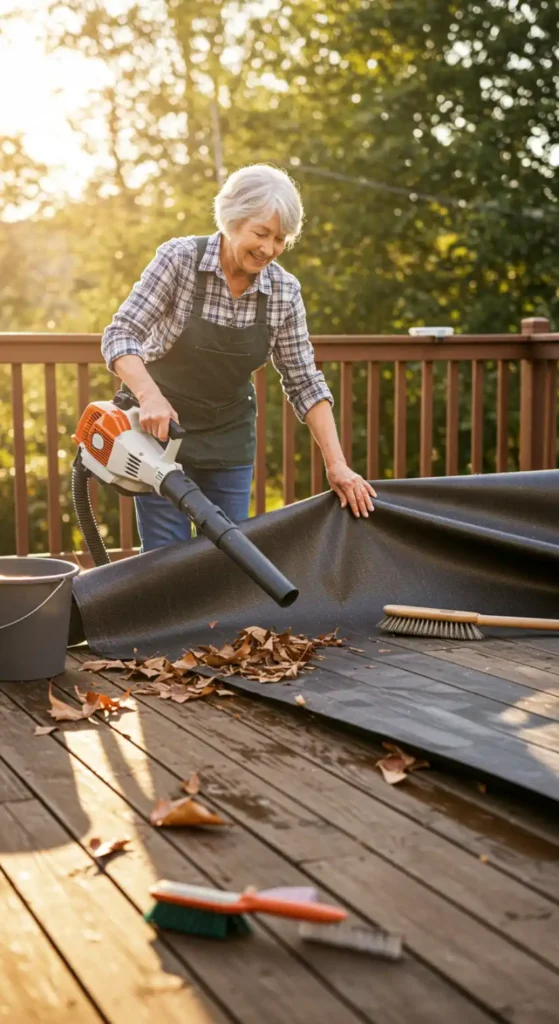
Cost Comparison Table
Here’s a quick look at the options:
| Cover Type | Average Cost | Durability | Installation Difficulty |
|---|---|---|---|
| Tarps | $20 – $50 | 1-3 years | Easy |
| Canopies/Umbrellas | $50 – $150 | 2-5 years | Moderate |
| DIY Pergola | $100 – $300 | 5+ years | Moderate to Hard |
| Retractable Awning | $200 – $500 | 5-10 years | Moderate |
Seasonal Considerations
Best Times for Installation
Spring and early summer are ideal for installing deck coverings. Avoid heavy rain or extreme heat when planning your project.
Adjusting Your Cover for Different Seasons
- Summer: Ensure your cover provides sufficient shade from the sun.
- Winter: Consider removing lightweight covers to prevent damage from snow accumulation.
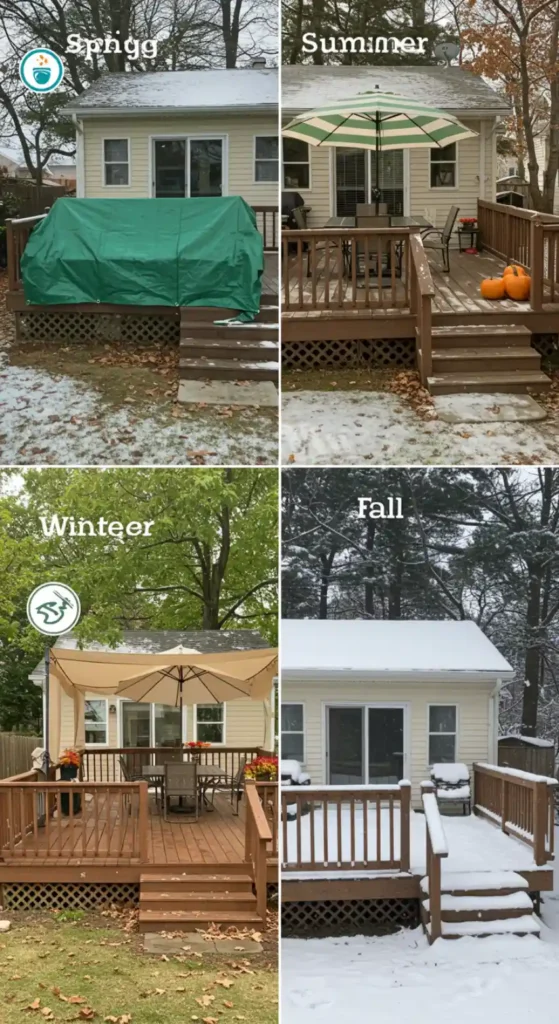
Conclusion
Covering your deck doesn’t need to be expensive or complicated. With a bit of creativity and effort, you can find a solution that fits your budget and protects your space. Whether you choose a tarp, a canopy, or a DIY project, you’ll be able to enjoy your deck, rain or shine!
FAQs
1. How long do tarps last?
Tarps can last anywhere from 1 to 3 years, depending on the material and weather conditions.
2. Can I use a regular umbrella on my deck?
Yes, a regular patio umbrella works well for light rain, but ensure it’s anchored securely to prevent it from blowing away.
3. What’s the best material for a DIY cover?
Select materials that are weather-resistant, such as treated wood or outdoor fabric, to ensure durability.
4. What are some other budget-friendly deck covering ideas?
Consider options such as retractable awnings, shade sails, or vinyl sheets for affordable protection.
5. How can I prevent mold growth on my deck?
Regular cleaning and ensuring proper drainage can help prevent mold growth on your deck.
